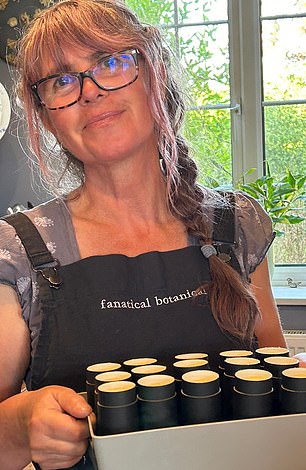How Britain’s coastal towns have become micro-business hotspots
The fresh sea air and occasional sunshine may be the main draw of Britain’s coastal cities, but they have also become a hotspot for entrepreneurship.
Coastal towns such as Felixstowe, Bournemouth and Sidmouth are among the fastest growing areas for UK micro-businesses, which employ fewer than ten people.
GoDaddy’s Venture Forward report mapped more than 600,000 businesses across Britain to determine each area’s ‘micro-business density’ relative to every 100 residents.
Pearl in the sand: British coastal towns are a hotbed for entrepreneurship
The area known as Suffolk Coastal saw a 54 per cent growth in the concentration of micro-businesses last year, more than ten times the national average of 5 per cent.
The number of small businesses registered in Britain last year reached a record high, according to data published by the Office for National Statistics.
In 2023, a total of 859,007 companies were registered, an increase of almost 75,000 compared to the previous year.
Andrew Gradon, head of GoDaddy UK & Ireland, said: “The UK small business community is in good health and we have seen growth in the density of micro businesses in most parts of the country.
‘Many iconic coastal towns were at the heart of this boom.
‘The trend has been particularly pronounced in the south of England as people have moved out of London post-Covid.’
Bournemouth West, which grew by 29 per cent, East Devon and Bexhill and Battle, both up 23 per cent, also exceeded the national average.
Meanwhile, micro-businesses on the Isle of Wight, Totnes and Portishead all grew by more than 13 per cent, while St Austell and Newquay grew by 11 per cent.

Catherine Hickman launched her skincare business in Felixstowe
Catherine Hickman, Felixstowe, is one of these coastal entrepreneurs, having founded her organic skincare company, Fanatical Botanical, last year.
‘Felixstowe has a strong community spirit; people believe in shopping local and supporting small businesses. The craft fairs and markets in Felixstowe helped get my business off the ground and in December I launched my website to support the next phase.
‘My business continues to grow and I have just found three local suppliers to distribute my range of natural skin care products.’
However, a divide is starting to emerge between north and south, as cities in northern England and Wales have not fared so well.
Blackpool South lagged behind the national average with growth of 2.7 per cent, while Scarborough and Whitby, and Morecambe and Lunesdale grew by 2.1 per cent. Grimsby experienced a contraction in business growth of 1 percent.
The Vale of Clwyd, where Rhyl is located, also suffered, increasing the density of micro businesses by 2.7 per cent.
Gradon said: ‘With rapid advances in technology and tools to help entrepreneurs set up websites quickly and efficiently, we hope to see the gap between the North and South coasts narrow in the near future.’
